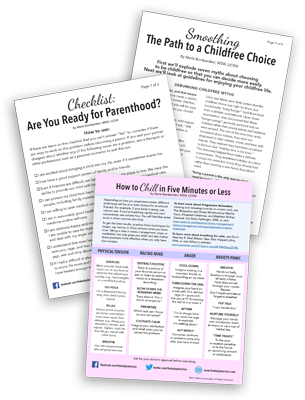Books for Better Living – New and Noteworthy Books For October
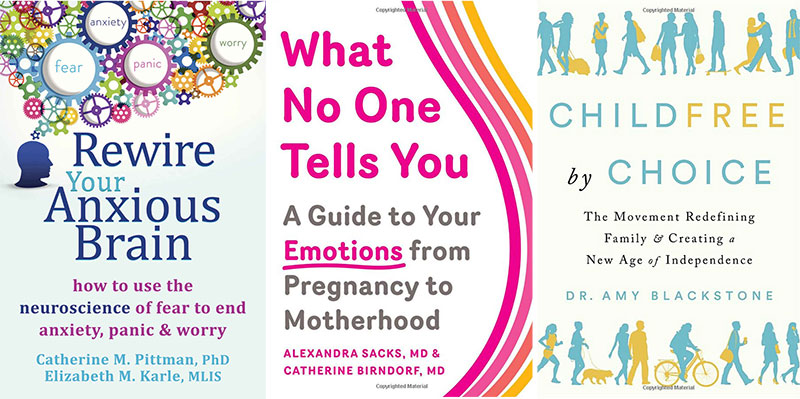
Introducing The “New and Noteworthy Books” Section…
In which I hand-select books that are intriguing and helpful while steering you clear of the fluff-filled and poorly written. Topics include childfree, parenting, zapping stress and finding meaning.
Got anxiety?
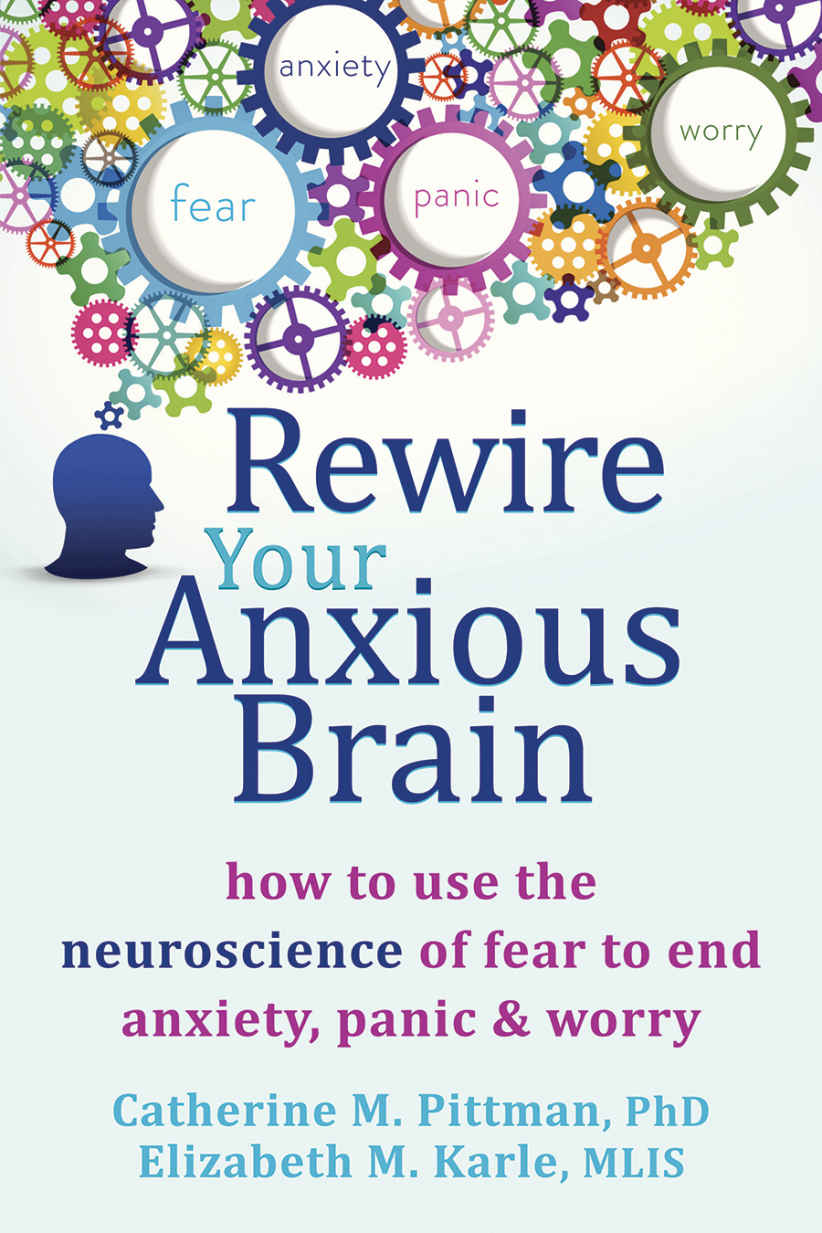 Read Rewire Your Anxious Brain: How to Use the Neuroscience of fear to end anxiety, panic, and worry. Catherine Pittman, PhD and Elizabeth Karle, MLIS. Oakland, CA, New Harbinger, 2015.
Read Rewire Your Anxious Brain: How to Use the Neuroscience of fear to end anxiety, panic, and worry. Catherine Pittman, PhD and Elizabeth Karle, MLIS. Oakland, CA, New Harbinger, 2015.
This book offers calming techniques based on recent neuroscience discoveries After you identify your symptoms and their triggers, you’ll find relief by targeting the part of your brain that troubles you. You’ll deactivate that part and enjoy a soothing calm.
For instance, if you’re physically tense and emotionally reactive, you will chill by teaching your amygdala to turn off false alarms. If, on the other hand, your cortex is a chatterbox of worry, obsession, or negativity, you’ll talk back to yourself to calm down.
If you have both sets of symptoms, you can use both approaches. You will also find out how mindfulness meditation can “use the cortex to look at your anxiety…from a distance rather than living in it and being trapped by its influence.” (pp. 192-193).
Bonus First Aid for Anxiety:
Get my cheat sheet, “How to Chill in Five Minutes or Less,” matched to your symptoms such as anger, tenseness, worry, obsession. Subscribe to my email list to receive it instantly. Existing email subscribers will find it in your October email newsletter.
Are You Pregnant or Postpartum?
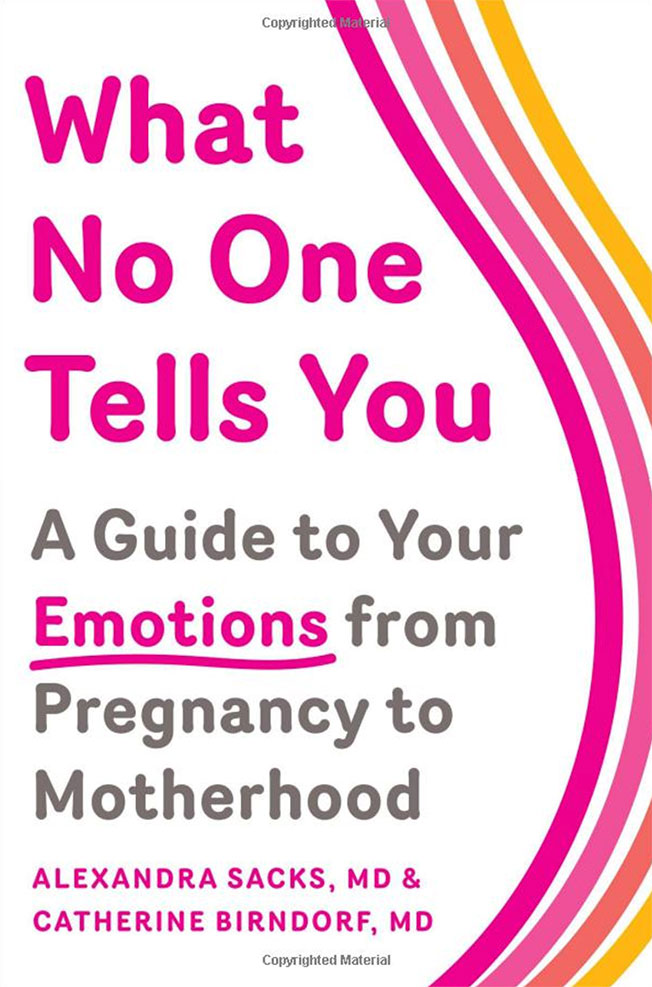 What No One Tells You: A Guide to Your Emotions from Pregnancy to Motherhood. by Alexandra Sacks and Catherine Birndorf. New York: Simon and Schuster, 2019.
What No One Tells You: A Guide to Your Emotions from Pregnancy to Motherhood. by Alexandra Sacks and Catherine Birndorf. New York: Simon and Schuster, 2019.
Most people, perhaps even you, expect you to be happy while pregnant. But even if you you’re glad to be pregnant, you won’t be blissful all the time. Physical discomfort, body changes and mood swings, and financial and relationship tensions may trouble you.
And what about postpartum? The baby may be healthy and cute, but sleepless nights, hormonal crashes, anxiety, and depression can zap your joy even though you’ll get there eventually. You may zigzag between bliss and blackness with no idea how you got from one to another and back again.
You’ll find honesty, validation, support, and humor in this wonderful guide. You’ll feel more normal and less alone when you know that other women are also struggling. And you’ll know what to do to feel better, including speaking up for what you need from your partner, family and the professionals working with you.
Other resources:
Pregnancy: The Psychological Experience. Libby Lee Colman. New York: Noonday Press, 1991. Don’t be put off by the publication date. This is a classic you don’t want to miss.
Good Moms Have Scary Thoughts: A Healing Guide to the Secret Fears of New Mothers. Karen Kleiman. Sanger, California: Familius LLC, 2019
Postpartum Support International. https://www.postpartum.net Helpline 1-800-944-4773
Dr. Lauren Brown, PsyD. Has a fabulous Instagram account, @maternalmentalhealth
Considering Childfree?
These three new books challenge stereotypes and offer role models.
Childfree by Choice: The Movement Redefining Family and Creating a New Age of Independence.
Dr. Amy Blackstone. New York: Dutton, 2019.
Childless Living: The Joy and Challenges of Life Without Children by Lisette Schuitemaker. Rochester, Vermont: Findhorn Press, 2019
Do You Have Kids? Life When the Answer is No.
by Kate Kauffman. Berkeley, CA: She Writes Press, 2018.
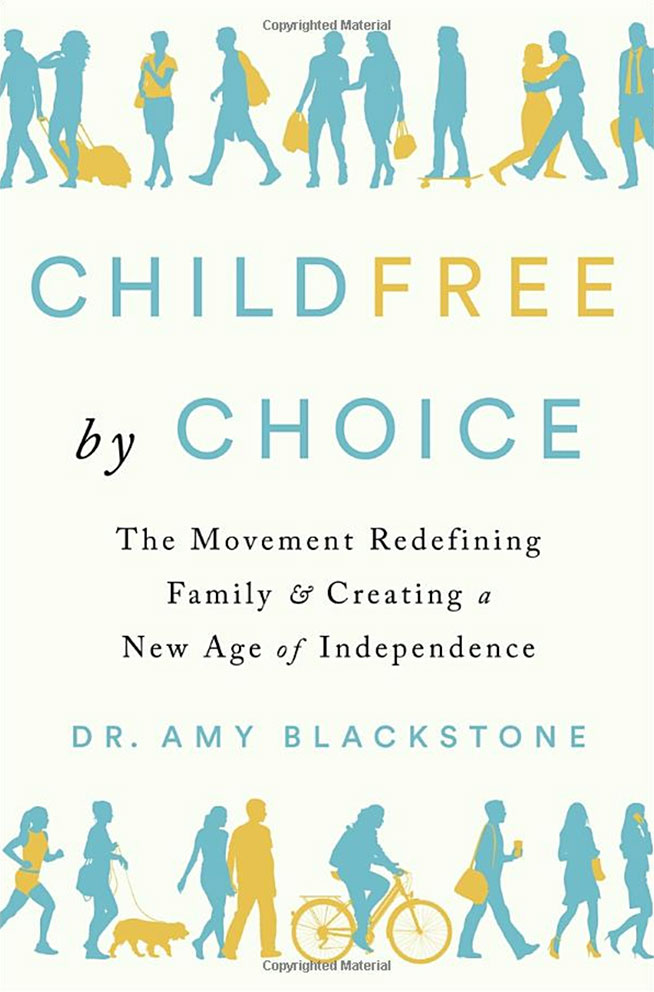 I especially recommend Childfree by Choice because the author, Amy Blackstone, a sociologist at the University of Maine, has conducted years of rigorous research on childfree people, Her work confirms what childfree people themselves and the professionals who guide their decisions have always known: They are mentally healthy, have happy marriages, and contribute to society in ways they could not if they had kids. Contrary to the stereotypes, many childfree people like children and spend time with them. They are no more narcissistic than parents.
I especially recommend Childfree by Choice because the author, Amy Blackstone, a sociologist at the University of Maine, has conducted years of rigorous research on childfree people, Her work confirms what childfree people themselves and the professionals who guide their decisions have always known: They are mentally healthy, have happy marriages, and contribute to society in ways they could not if they had kids. Contrary to the stereotypes, many childfree people like children and spend time with them. They are no more narcissistic than parents.
While stereotyping and discrimination against people of color, LGBTQ, older or disabled people are frowned upon, many people talk about childfree people with appalling ignorance and venom. They’re labeled selfish and immature, even if they are contributing to society through careers or volunteer work they couldn’t do if they were parents, even if their concern for the environment influenced their decision.
These stereotypes have persisted despite brilliant essays, books, and social media contributions. Society has a long way to go. But these books can help us get there.
As someone who is both a parent and a grandparent, but who has been a tireless advocate for childfree people since 1978, I celebrate these books’ contribution towards admiration, respect, and acceptance of all childfree people.

